Strangulation Preconference
Untangling Evidence in Strangulation & Asphyxiation Crimes
89% of attendees stated that they would change their practice based on what they learned
Preconference, 2022, Missed & Misdiagnosed Asphyxiation Deaths
82% of attendees stated that attending this course made them reconsider past cases.
Preconference, 2022, Missed & Misdiagnosed Asphyxiation Deaths
Location: Austin Rooms 2 & 3
Agenda
8:00am - 8:30am (30 min)
Check-in, networking, etc.
8:30am - 9:15am (45 min)
Networking, Welcome, Introductions, & Training
Overview Keynote: What We Wish We’d Known
9:15am - 10:00am (45 min)
Known Practitioners & Perspectives
10:00am - 10:15am (15 min)
Break
10:15am - 11:45am (1 hr & 30 min)
Perpetrators: Masters of Manipulation
Understanding the Victim’s Perspective Evolution of Interviewing
11:45am - 12:45am (1 hr)
Lunch
12:45am - 2:45am (2 hr)
Identifying Danger: Gabby Petito
Unintended Consequences: Breakout Sessions
2:45am - 3:00pm (15 min)
Break
3:00pm - 4:00pm (1 hr)
Breakout Session Debrief
Response Protocols
4:00pm - 4:30pm (30 min)
Faculty Panel
Closing & Evaluations
DOWNLOAD AGENDA PDF
TRAINING FACULTY

Kelsey McKay
Attorney & Consultant, McKay Training & Consulting, LLC & President of the non-profit, RESPOND Against Violence
Kelsey McKay trains and consults nationally for communities to implement the protocol in various fields including intimate partner violence, child abuse, sexual assault, the use of expert witnesses, translating trauma, and other complex topics. She was a prosecutor in Travis County, Texas for twelve years. For six years she exclusively prosecuted strangulation-related crimes ranging from assault, sexual assault to capital murder. She has developed and implemented protocols for strangulation and domestic violence response and treatment. To that end, she has strengthened how communities collaborate, investigate, treat and prosecute strangulation and intimate partner cases. She works to develop medical and non-medical experts in the community to testify to a jury regarding the evidence in strangulation, trauma-related crime, and family violence cases.
Consulting Website: https://www.mckaytrainingconsulting.com
RESPOND Website: https://www.respondagainstviolence.org
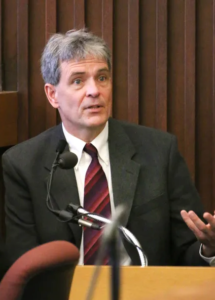
Dr. Scott Hampton
Director, Ending the Violence
Scott Hampton. has worked with batterers, sex offenders, victims, and child witnesses for over 30 years. He is the Director of Ending the Violence, a Dover, NH-based organization that provides educational classes to perpetrators of domestic and sexual violence. He is also the Project Coordinator for Strafford County NH’s Supervised Visitation Center. Dr. Hampton writes and speaks frequently on issues related to interpersonal violence, including his 2010 book “Tolerant Oppression: Why promoting tolerance undermines our quest for equality and what we should do instead”. He spends much of his time consulting on the handling of domestic and sexual violence cases, conducting workshops, and testifying in court as an expert witness in interpersonal violence-related cases. He is a past President of the National Supervised Visitation Network, a peer reviewer for the US DOJ, and has been serving on NH’s Domestic Violence Fatality Review Committee since its inception in the late 1990’s.
Website: http://www.endingtheviolence.us/

Erica Olson
Consultant and Subject Matter Expert
Erica Olson is a Consultant and Subject Matter Expert specializing in interpersonal violence (IPV) and trauma-informed care and management. Drawing on 20+ years of experience in direct services, advocacy, policy, and applied research, Ms. Olson advises and supports individuals and organizations advancing their knowledge and practices around IPV and trauma. She has been appointed to multiple state and national efforts, including the CDC’s Rape Prevention and Education Program and the National Violent Death Reporting System. She is the former Director of the NJ Domestic Violence Fatality and Near Fatality Review Board and has co-authored curricula, policy, regulations, legislation and publications. Ms. Olson holds an Expert Witness Certification through the Institute on Domestic Violence and Sexual Assault, and a Certificate in Public Policy Analysis.

Dr. Khara Breeden
Founder and Chief Executive Officer of Texas Forensic Nurse Examiners (TXFNE)
Khara Breeden is the Founder & CEO of Texas Forensic Nurse Examiners: The Forensic Center of Excellence (TXFNE) and has been involved in forensic nursing since 2012. While collaborating with community partners, Dr. Breeden was challenged to aid in closing the gap in medical forensic services for victims of violence and developed a collaborative approach through the creation of the TXFNE. The Forensic Center is a community-based victim service center that is continually seeking creative ways to improve outcomes for victims of violence that launched in 2019. It has since expanded to include advocacy, counseling and an adult forensic nursing program and has now branched out from its original location in the Houston, Texas area to include satellite forensic nursing programs in the Rio Grande Valley and North Texas regions.
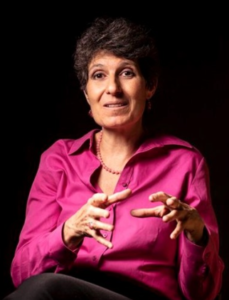
Andrea Zaferes
Medicolegal Death Investigator, Forensic Aquatic Consulting & Training, LLC
Andrea Zaferes is an Aquatic Death Investigator & Public Safety Diving and Water Rescue Trainer with Team Lifeguard Systems. As a medicolegal death investigator, Ms. Zaferes is familiar with the handling of aquatic and asphyxiation cases from the scene to the courtroom. She trains law enforcement, medical examiners/coroners, dive teams, domestic violence and trafficking crime workers, medical personnel, and jurisprudence members to recognize, document, and investigate homicide, death, assault, and abuse cases that involve drowning and other forms of asphyxiation. She assists with analyzing and building such cases in the U.S. and abroad and has developed standards for investigation. Ms. Zaferes has been teaching dive teams around the world for more than 30 years to recover submerged evidence and bodies. She is an author and frequent public speaker on aquatic forensics. She is a pro bono consultant for organizations such as the National Center for Missing & Exploited Children and the New York State Division of Criminal Justice Services Missing Person Cold Case Review Panel. Ms. Zaferes also works with the Dutchess County Medical Examiners’ Office and Respond Against Violence.
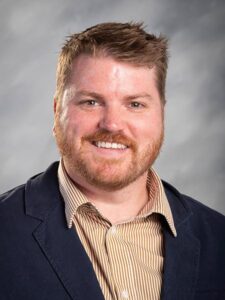
Patrick Brady
Assistant Professor, Department of Criminal Justice at the University of Colorado
Patrick Brady is an Assistant Professor in the Department of Criminal Justice at the University of Colorado in Colorado Springs. Having experience supervising delinquent youth, implementing violence prevention programming in educational settings, and training criminal justice professionals on preventing intimate partner homicide, Mr. Brady strives to help criminal justice agencies to use research to answer pressing questions. His research focuses on how officers and prosecutors can corroborate evidence beyond physical injuries in domestic violence complaints, as well as how agencies can address vicarious trauma and burnout in policing.
Website: http://www.endingtheviolence.us/

Myra Strand
Strand2 Squared Solutions
Myra Strand owns Strand² Squared Solutions, whose mission is to pave a path from trauma to transcendence through training, education, and technical assistance. With a career in trauma work that began in 1995, Ms. Strand has extensive experience supporting various populations, including people with serious mental illness and developmental disabilities, youth living in competing warzones, all types of crime victims, and adults and adolescents living in incarcerated spaces. She offers training and support to professionals responding to crisis and victimization. Ms. Strand also offers on-demand training covering several topics, including a NACP (National Advocate Credentialing Program) approved 45-hour advocate certification training.
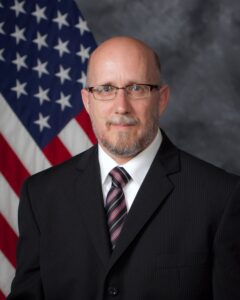
Russell W. Strand
Senior Special Agent (Retired)
Senior Special Agent (Retired) Russell W. Strand is the owner and creative visionary of Effective Detective LLC – focusing on criminal justice multidisciplinary education and training, primary prevention, technical assistance, and systems improvement. Mr. Strand has over 48 years of experience and trained over 800,000 criminal justice professionals. He is a retired Special Agent, Program Manager, Lead Sexual Assault Response Coordinator (SARC), victim advocate, and Violence Prevention Program Manager. Mr. Strand is also a retired Chief of the Behavioral Sciences Education & Training Division for the US Army MP School, where he spent 20 yrs developing and implementing training and education courses, presentations, and consulting around the world in the areas of violence against persons. He is an internationally recognized as an expert educator, visionary leader, and consultant by military, governmental, higher education, and other organizations.

Jordan Ferguson
Ferguson Consulting
Jordan Ferguson is a former Sergeant who has over 35 years of law enforcement experience. Sgt. Ferguson’s last 6 years were with the Spokane Police Department, where they utilized evidence-based practices such as focused deterrence, procedural justice, and lethality assessment to reduce domestic violence (DV) by approximately 10% a year for 4 years. Moreover, officers used advanced strangulation training and trauma-informed responses in their duties. Sgt. Ferguson brought the Firearms Technical Assistance Project to Spokane and, leveraging his partnership with the YWCA, helped create a DV Firearms Analyst position for compliance hearings. Since retiring, he has worked with the Spokane Regional Domestic Violence Coalition and is actively working on improving law enforcement’s response to domestic violence.

Nichole Schmidt
President, Gabby Petito Foundation
Since losing my daughter Gabby, I’ve dedicated my life to advocating for domestic violence prevention and awareness for missing persons. My mission is to be a voice for victims, survivors, and their families, honoring Gabby’s memory by raising awareness, inspiring action, and driving change to save lives.
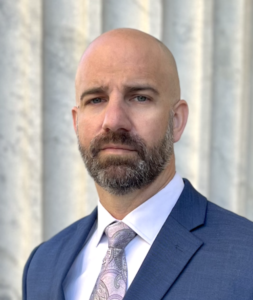
Jim Schmidt
Secretary, Gabby Petito Foundation
Jim is a seasoned fire service professional with over 24 years of experience in various roles, including fire, EMS, emergency dispatch, fire instruction, and technical rescue. A former career fire captain and volunteer fire chief from Long Island, NY, Jim currently serves as a training specialist in the Public Relations & Community Risk Reduction division of the 4th largest fire department in Florida.
In 2021, Jim and his family faced an unimaginable tragedy when their daughter, Gabby Petito, was brutally murdered by someone they trusted. Since then, Jim and his family have committed themselves to turning their grief into action by advocating for missing persons, as well as victims and survivors of domestic violence.
Reflecting on his extensive career and current advocacy, Jim has identified significant gaps in prevention and education within the field. One of the key goals of the Gabby Petito Foundation is to provide critical domestic violence training for first responders, ensuring they are better equipped to address these sensitive situations with compassion and effectiveness.


